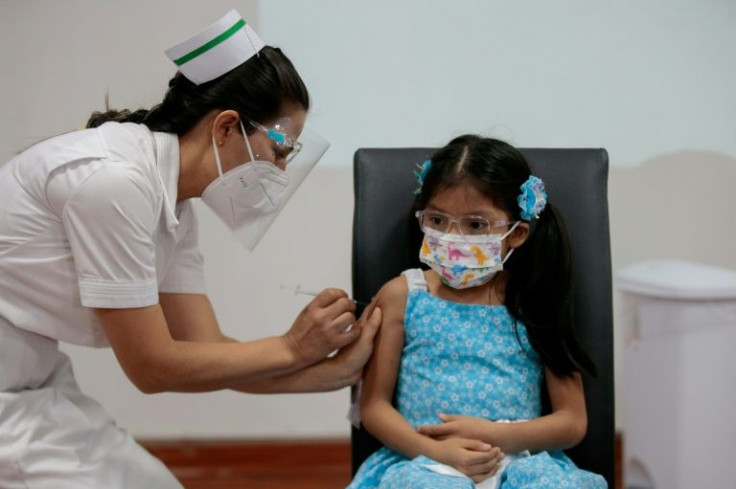New Omicron Symptom In Kids Could ‘Clog’ Airways: What Is Croup?
KEY POINTS
- "Croup-like presentations" were observed in young children who tested positive for COVID-19
- The symptom most likely occurred as the virus' omicron variant tends to settle higher up in the respiratory tract
- Doctors assured parents that most children who contract the coronavirus suffer mild illnesses
What appeared to be a common infection among toddlers has been detected in children with COVID-19, suggesting that it could be a symptom of the virus' omicron variant.
"Croup-like presentations" were observed in young children who tested positive for the coronavirus, NBC News reported, citing pediatric infectious disease expert Dr. Buddy Creech.
Croup, with its characteristic barking cough, is a common infection among children between 3 months old to 5 years old that causes swelling in the upper part of the airway in the neck, according to Los Angeles-based nonprofit hospital Cedars-Sinai Medical Center.
The symptom most likely occurred among the child cases since COVID-19's omicron variant tends to settle higher up in the respiratory tract than deep in the lungs, doctors said.
"Little kids' airways are so narrow that it takes far less inflammation to clog them," Creech, who is also the director of the Vanderbilt Vaccine Research Program at Vanderbilt University Medical Center in Nashville, Tennessee, was quoted as saying.
Croup's characteristic barking cough appears when the upper part of children's airways become very swollen, the doctor explained.
Dr. Saif Al Qatarneh, a pediatric pulmonologist at West Virginia University, claimed he has also noted an increase in diagnoses for croup as well as the respiratory tract infection called bronchiolitis in tandem with a rise in child COVID-19 cases.
Both illnesses, which can also be caused by several seasonal viruses like parainfluenza and respiratory syncytial virus, are reportedly well-known to doctors as they have had decades of experience treating them.
"Croup is a bread-and-butter pediatric diagnosis," Dr. Mark Kline, the physician-in-chief at Children's Hospital New Orleans, said.
The condition "is one of the first diseases you learn about when you're an intern in pediatrics," Kline, whose team also observed an increase in COVID-19-related croup, explained.
Dr. Amy Edwards, a pediatric infectious disease expert at University Hospitals Rainbow Babies & Children's Hospital in Cleveland, said it was "oddly reassuring" to see more children with croup and bronchiolitis... because we've been dealing with those conditions for our entire careers."
Despite being "scary to hear," croup is not indicative of a lung problem, according to Edwards. The illness may require a few days of steroids, but it often goes away on its own, she explained.
"The main treatment is to keep the upper airways open and clear until the inflammation subsides," Edwards said.
Kids with bronchiolitis, meanwhile, may sometimes need oxygen support of breathing treatments before recovering completely, she added.
Edwards and others reportedly want to reassure parents that most children who contract COVID-19 are likely to have mild illnesses. However, it is still possible for some children, even previously healthy ones, to develop serious complications that require hospitalization.
Hospitalization rates among children aged below five have seen an increase, data provided by the Centers for Disease Control and Prevention (CDC) last Friday showed.
The bracket, which accounted for at least 1.3 million coronavirus cases in the United States, is the only age group not eligible for vaccination in the country.
Overall, the U.S. has reported a total of 59,521,277 COVID-19 cases and 834,077 virus-related deaths, according to the most recent data from the CDC.
An ongoing global surge in coronavirus cases has been attributed to omicron, which Chief Medical Advisor to the President of United States Dr. Anthony Fauci claimed was less severe than the delta variant.
However, the World Health Organization has warned that the variant should not be categorized as "mild."
Fauci, for his part, also cautioned against complacency and urged the public to get vaccinated, receive their booster shots and wear masks.

© Copyright IBTimes 2025. All rights reserved.





















